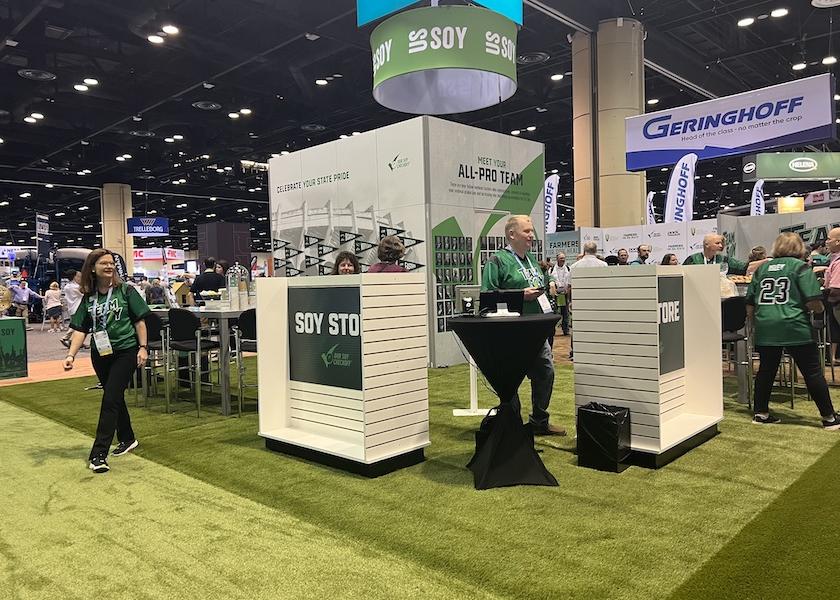Artificial Turf Made With Soybeans is Growing in Popularity, Now on Display at the San Diego Zoo

The artificial turf market is seeing growing demand with the industry forecast to reach $7 billion by 2025. Now, a turf made from soybeans is becoming more popular and is being used in locations such as the Las Vegas Strip, the San Diego Zoo, Denver's airport and Central Park.
You may have heard of soybeans used to make tires or even soy-based asphalt utilized to pave roadways. The artificial turf market is now opening the doors for another way soybeans can be utilized for products in the U.S.
United Soybean Board (USB) partnered with SYNLawn to create the soy-based turf. SYNLawn’s synthetic grass uses the soybeans in the bio-based backing. Research uncovered the soybean soil displaced 60% of the petroleum-based polyurethane that’s commonly used to make artificial grass products.
The product was even an attraction in USB’s booth at Commodity Classic this year.
“We have SYNLawn here today, which is a soy-based turf. It's really exciting," says Meagan Kaiser, USB chair from Bowling Green, Mo.
SYNLawn is looking to grow the market even more with plans to find a home for the turf in professional sports stadiums around the globe.
It’s not just tourist or sporting attractions where the turf can find a home. During the recent drought in the western U.S., it became a sustainable option to weather the dry conditions. It’s also a way to cater to those looking for innovative landscapes, but don’t want the hassle or footprint of constantly watering real turf.
You can view all of SYNLawn's bio-based turf collection, which the company says is leading the industry in sustainability, as USDA Certified Bio-Based collection is the first line of artificial grass made entirely from plant-based materials, including soybeans.







